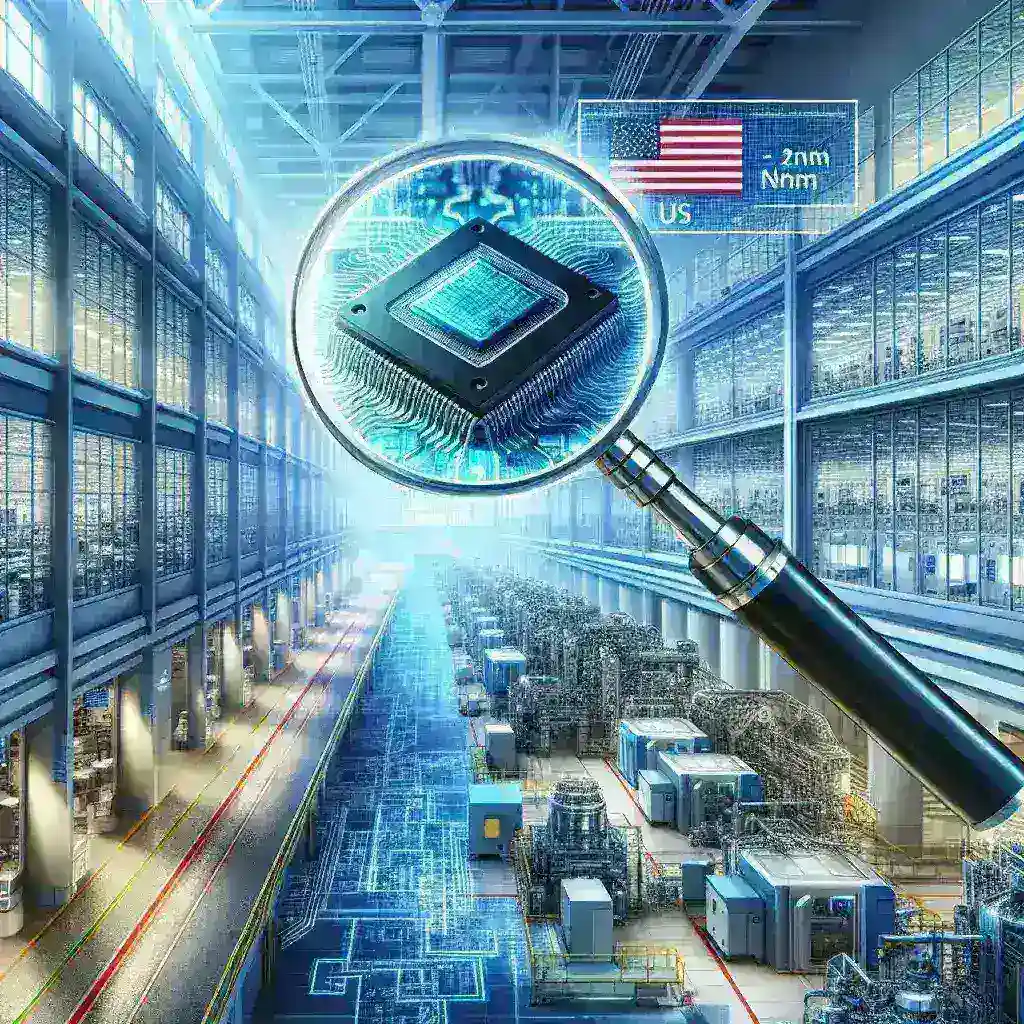Intel’s Strategic Move: Expanding 2nm Chip Fabrication Pilot Lines in the U.S.
In a groundbreaking announcement, Intel Corporation has confirmed the expansion of its 2nm chip fabrication pilot lines in the United States. This significant development not only underscores Intel’s commitment to maintaining its leadership position in the semiconductor market but also highlights the growing importance of advanced manufacturing capabilities in the U.S. tech landscape.
The Importance of 2nm Technology
The 2nm technology represents a substantial leap forward in chip manufacturing, enabling the production of smaller, more efficient chips that promise enhanced performance and energy savings. As the demand for computational power continues to escalate across various sectors—from artificial intelligence to mobile devices—the ability to produce 2nm chips is pivotal. These chips are expected to deliver unparalleled processing capabilities while consuming significantly less energy.
A Historical Context
Intel has a rich history in semiconductor innovation, having pioneered several breakthroughs since its inception in 1968. The company has consistently pushed the boundaries of what is possible in chip technology. The confirmation of the expansion of the 2nm pilot lines not only continues this tradition but also aligns with Intel’s strategy to regain its competitive edge against rivals such as AMD and NVIDIA. By investing in cutting-edge technology, Intel aims to set new standards for performance and efficiency in the semiconductor industry.
Implications for the Semiconductor Industry
The expansion of these pilot lines holds profound implications for the broader semiconductor ecosystem. As Intel ventures into producing 2nm chips, it may trigger a ripple effect across the industry, prompting competitors and partners to accelerate their own research and development efforts in advanced chip technologies. This could lead to a fast-paced innovation cycle, ultimately benefiting consumers with more powerful and efficient devices.
Pros and Cons of the Expansion
- Pros:
- Increased manufacturing capacity for cutting-edge chips.
- Potential to set new performance benchmarks in the industry.
- Strengthening of U.S. semiconductor manufacturing capabilities.
- Cons:
- High costs associated with developing and operating advanced fabrication facilities.
- Risk of technological obsolescence as new processes emerge.
- Intense competition may lead to market volatility.
Future Predictions: What Lies Ahead?
Looking ahead, the expansion of Intel’s 2nm chip fabrication capabilities is expected to position the company favorably in the evolving landscape of technology. Industry analysts predict that by integrating 2nm chips into various applications, Intel could not only capture a larger market share but also redefine user experiences in computing.
Potential Applications of 2nm Chips
- Artificial Intelligence: Enhanced processing power for AI algorithms can lead to faster data analysis and decision-making.
- Mobile Devices: Smaller and more energy-efficient chips can significantly improve battery life and performance in smartphones and tablets.
- Data Centers: More efficient chips can reduce operational costs and increase the performance of cloud services.
Cultural Relevance and Industry Impact
The announcement of the expansion of 2nm chip fabrication lines comes at a time when global supply chains are becoming increasingly scrutinized. As governments push for technological sovereignty, Intel’s move to expand its manufacturing capabilities within the U.S. is culturally and economically significant. It symbolizes a shift towards greater self-reliance in critical technology sectors.
Expert Insights
According to industry experts, the success of Intel’s 2nm pilot lines will depend on several factors, including technological execution, market demand, and the regulatory environment. Dr. Lisa Su, CEO of AMD, noted, “The race for semiconductor leadership is heating up, and companies like Intel must continuously innovate to stay ahead. The 2nm technology could redefine the competitive landscape.”
Conclusion: A New Era for Intel and Semiconductor Technology
Intel’s confirmation of the U.S. expansion of its 2nm chip fabrication pilot lines marks a pivotal moment in the semiconductor industry. By leveraging advanced technologies, Intel is poised to not only enhance its market position but also contribute to the evolution of computing technology at large. As we stand on the brink of a new era, the implications of this expansion will be felt across various sectors, influencing everything from consumer electronics to enterprise solutions.
In summary, the expansion of Intel’s pilot lines signifies more than just an upgrade in chip technology; it represents a commitment to innovation, efficiency, and the future of computing. With the landscape of technology rapidly evolving, all eyes will be on Intel as it works to bring its 2nm chips to market, setting the stage for the next generation of semiconductor solutions.

